What is the Self Reliant Diver course?
The PADI Self Reliant Diver course is designed to
- develop the skills of planning and carrying out dives without a partner when preferred or necessary
- sharpen skills of diving self-reliance, making the diver a stronger partner in a dive pair or team
What it teaches you is:
- to carry redundancy or ‘spares’ of all the important things
- to be fully aware of your gas consumption
- how to look after yourself if problems arise
- to be prepared for the unexpected
If you choose to dive alone after the course – you should be reasonably safe, as long as you dive within your limits. But you will also be an alert, aware and prepared buddy, when diving in a buddy pair or group.
Redundancy (Spares)
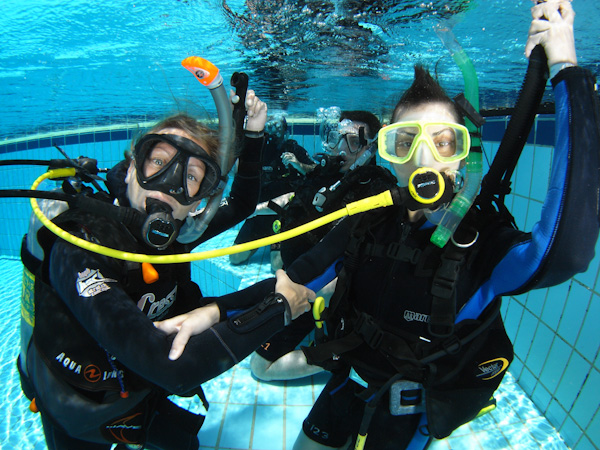
When diving with a buddy, group or dive pro, you rely on their equipment as your redundancy. You learn in your Open Water course to access their alternate air source if you have a problem with your air supply.
The problem with this is that your buddy is actively using their air supply, and views your air as their redundancy. While problems rarely happen, you are both relying on a dwindling resource. By the end of the dive, it is quite possible that neither of you have much ‘spare’ air to give.
With self-reliance you don’t rely on anyone else to bail you out if things go wrong. You carry a redundant air source, spare mask, spare SMB, cutting tool, spare computer & spare of anything else that might be critical on your dive. If there is a problem with any key parts of your equipment, you have the resources to get yourself safely to the surface.
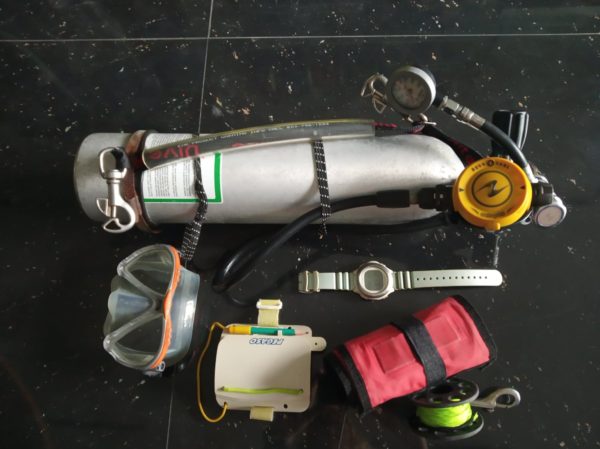
So what IS redundancy?
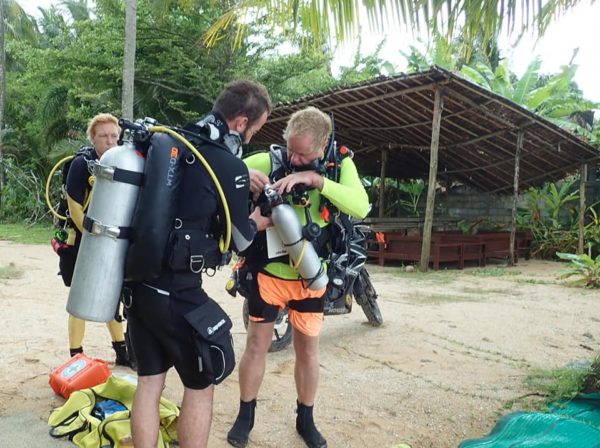
Redundancy is an extra or spare piece of equipment that is fully operational, ready and immediately available, but which you do not plan to use.
If you intend to use a piece of equipment (e.g. a cylinder) during your dive, it isn’t redundancy, it’s part of your dive plan.
So when we become self-reliant, we plan to complete our dive using certain pieces of equipment. We allow an appropriate safety margin, factor in the things that may go wrong, and make sure we cover those bases. Then we take a spare of all the important things as well.
Awareness of your gas consumption
How many of us know how much gas we have left in our cylinder without checking the gauge? I know that prior to the self-reliant diver course, I rarely checked my gauge. Because my customers or students would always use their air faster than me, I just checked theirs.
On most dives, if I would check my air once or maybe twice in a dive. For me, the hardest part of this course was becoming aware of my own gas usage.
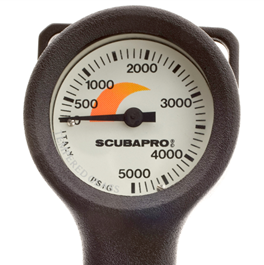
As part of the course you have to note time, depth and pressure remaining at regular intervals, which forces you to take note of your breathing rate. You work out how much air you use, so that you can predict how long you can remain underwater, but also to help you spot problems.
If your needle isn’t dropping at the rate you expect it to, or your pressure is dropping faster than it should, it should alert you to check for problems. If you know how fast you expect to go through your air, you have a reference to detect potential problems earlier.
How to look after yourself if problems arise?
There is no real substitute for doing training drills. New skills need to be learned as muscle memory so that your response is automatic. I talk to my Divemaster trainees about ‘instinctive’ buoyancy, where you don’t even realise that you are managing your buoyancy because you have achieved ‘unconscious competence‘.
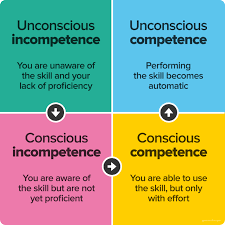
We need to achieve the same level with problem response.
If you lose your mask, do you know where the spare is? Can you locate it by touch? Are you able to maintain your buoyancy without any visual references (because you have very few without a mask)? Can you locate the reg on your redundant air source? Can you turn the air on, purge the reg and take a breath within a few seconds?
These are the skills that we as divers need, in order to be fully self-reliant.
Being prepared for the unexpected
Nobody plans to have a problem. No-one wakes up and says ‘today is a good day to have an accident’. Accidents DO happen and problems DO occur. Whether they become a serious problem or a minor annoyance, is in large part down to how we respond to them.
We need to be prepared both physically and mentally.
Physical preparation we’ve already covered. The largest part of it is having sufficient redundancy to cope with a problem, and training on it until you reach unconscious competence.
Mental preparedness is partly the ability to stop, think, then act, without panic. Generally speaking, it isn’t equipment failure that injures people, it’s panic. Losing your mask won’t harm you. Bolting to the surface in a panic because you are uncomfortable without your mask, might do. If you have trained on something to the point of unconscious competence, you are most of the way to being mentally prepared.
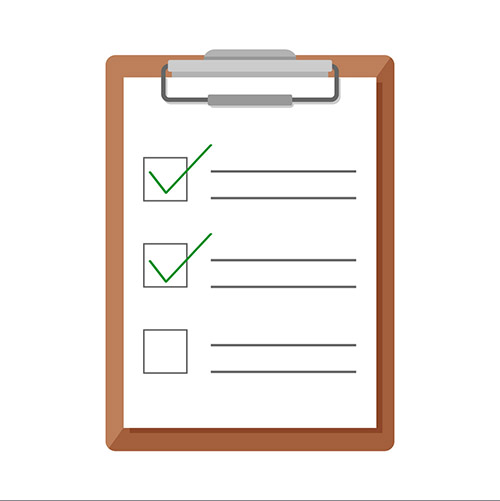
Mental preparation also includes the meticulous checking that you have everything you need and it’s all working properly, before you jump in the water. It’s easy to get complacent and not check everything every time – after all, what will have changed since the last dive? Probably nothing, but the time you don’t check it may be the time you need something that’s missing.
Forcing yourself to make those checks thoroughly, every time, even when you think there’s no need, requires effort. But if things go wrong, you know with certainty that you have everything you need to deal with the problem and the risk of panic is reduced.
Summary
The Self-Reliant Diver course builds confidence, competence, and increased awareness of your equipment and gas consumption. It’s only available to people with 100+ dives, and that’s a minimum requirement. I’ve refused to teach someone who I felt did not have the right attitude to keep them safe.
The course is interesting, challenging, lots of fun, and even more fun to teach. If you would like more information on doing your Self Reliant Diver Course or Self-Reliant Instructor Course here in Thailand, then please contact us.
